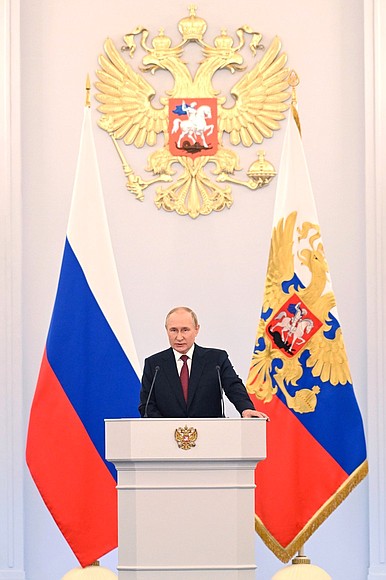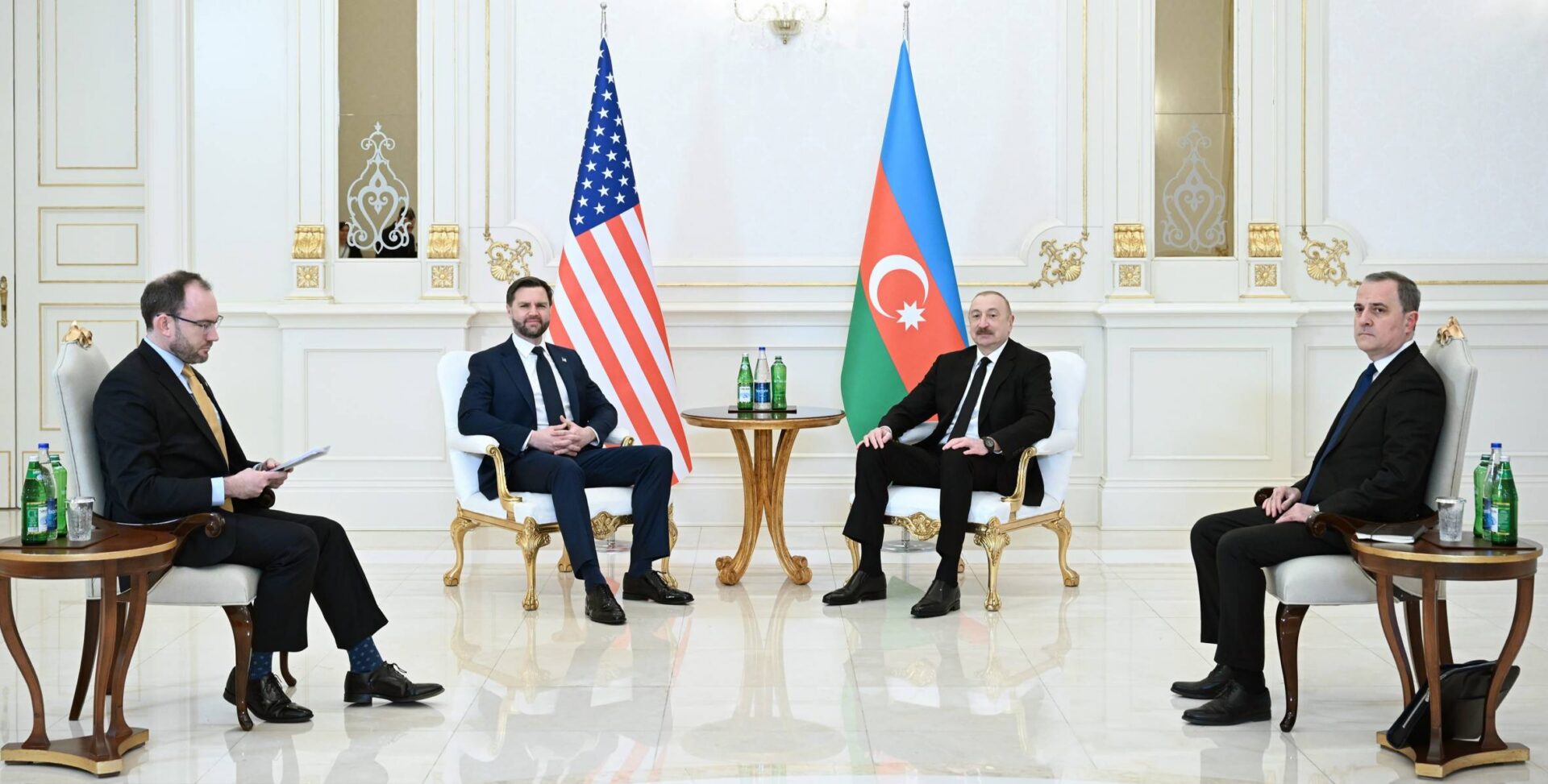
What Lies Behind Russia’s Increasingly Esoteric Anti-Western Rhetoric?
What Lies Behind Russia’s Increasingly Esoteric Anti-Western Rhetoric?
As Russian officials and propagandists scramble to develop a better spin on the continuing debacle in eastern Ukraine, some have begun to evoke the metaphysical dimension of the ongoing fight, while others are reaching deep into Russia’s past for solutions and new insights. To call this effort grotesque would be somewhat unkind, yet not entirely inaccurate. There might, however, be more to this new phenomenon than meets the eye.
In late September 2022, at the ceremonial signing of treaties to incorporate the Donetsk, Luhansk, Zaporizhzhia and Kherson Oblasts into the Russian Federation, President Vladimir Putin declared that the “world has entered a period of a fundamental, revolutionary transformation.” To bring about that change, Putin continued, Russia is fighting against “the dictatorship of the Western elites” and the “complete renunciation of what it means to be human, the overthrow of faith and traditional values and … a religion in reverse—pure Satanism” (Kremlin.ru, September 30). This was a peculiar choice of words for the Russian president—a former communist with a law degree—who is not known for excessive piety or messianic beliefs, has rarely played the politics of bitterness and has long cultivated a reputation as a tough but cerebral politician.
Also on September 30, Russian actor Dmitry Pevtsov posted a video in which he is seen addressing a group of newly mobilized Muscovites with the chilling message that, in Ukraine, they are going to battle against “the forces of evil and darkness.” Pevtsov, who also moonlights as a member of the Russian State Duma, blindsided everyone in attendance with the claim that the Russian army, backed by the majority of mankind, is taking a stand against the satanic forces of the united West to ensure that “a family will be made up of mom, dad and children” (YouTube, September 30). Neither Pevtsov nor Putin were very original in their thinking, however, since their explanations of the motives for the war against Ukraine mostly reprised the old themes—first introduced by Chechen officials including Chechnya head Ramzan Kadyrov—that the Russian military is currently waging a war against the hosts of the Antichrist, transgender people and the LGBTQ community (Grozny-inform.ru, March 5; Regnum.ru, July 15; T.me/RKadyrov_95, August 1).
Even more bizarre—but still very much in line with the apocalyptic “us versus them” thinking that is increasingly permeating public discourse in Russia—was actor Ivan Okhlobystin’s declaration of a “holy war” against the “Old World … ruled by madmen, perverts and Satanists” (YouTube, September 30). In his unapologetically inflammatory speech, which Okhlobystin delivered during the annexation celebrations just outside the Kremlin, Chechen influences were more pronounced and easily recognizable. “Muslims have the concept of jihad. It is not just deadly combat with a foe on a battlefield, it is primarily a struggle with the sins within your own heart,” Okhlobystin, a former Orthodox priest, told his listeners. This reinforces Chechen Mufti Salah Mezhiev’s declaration immediately after Russia’s re-invasion of Ukraine that Moscow is fighting a ghazwa (or “holy war”) to halt the spread of Western “filth” (Instagram.com/groznytv, February 27).
But something novel (and a little disturbing) did happen during Okhlobystin’s rant. At some point during the performance, the actor, whose most memorable role was as a sharp-tongued court jester in a 2009 movie about Ivan the Terrible, began yelling, “Goida!” This obscure Russian (or Tatar) word is believed to have been the battle cry of Tsar Ivan’s black-robed death squads, the oprichniki, whose main function was to “sweep and gnaw away treason” for the progressively paranoid sovereign.
Some Russian commentators assert that Okhlobystin is an unscrupulous imitator, a pied piper and a complete hypocrite who does not believe in his own messages; but, in this, they are missing the larger point (YouTube, October 1; October 2). Not even the most unprincipled and morally uncluttered entertainer, in this day and age, would dare—drowning in his own hyperbole and affronting international sensibilities—to air such messages from a podium under the Kremlin’s walls unless explicitly authorized to do so.
Signals are flashing everywhere that Moscow is increasingly unhappy with the military campaign in Donbas, and the atmosphere has soured particularly since the retreat from several key Ukrainian towns and the bombing of the Crimean Bridge (see EDM, September 21). The appointment on October 9 of General Sergei Surovikin—a Chechen and Syrian war veteran with a reputation for extreme brutality—to lead all Russian forces in Ukraine and the continuing strikes on civilian targets are likely to be just the first steps in a string of measures aimed at reversing the setbacks in Ukraine.
On October 6, retired Lieutenant-General Andrey Gurulyov, a member of the Duma’s Defense Committee and frequent guest on various propaganda talk shows, stated in response to pro-Putin broadcaster Vladimir Solovyov’s lamentations about the corruption and inefficiency of Russia’s top commanders that it is time to bring back SMERSH, the World War II–era secret organization created by Joseph Stalin (another Ivan the Terrible admirer) to crush the enemy, both within and without.
Although Putin has previously made numerous confrontational statements, as have his underlings, this time around they are even more hawkish than before, reflecting the mounting stress induced by the failures in Ukraine, on the one hand, and the growing clamor against the Kremlin’s top military leadership emanating from the likes of Kadyrov, on the other. Nevertheless, this change in language and rhetoric is unlikely to signify Putin’s departure from rational thought and judgment, as some observers like to think. Instead, it is more indicative of shifts in ideological commitment, a swing toward more conservative and hardline forces and possible changes in future policy. On a practical level, Putin may bow to this growing pressure and cobble together a new military counterintelligence force out of his numerous security agencies to deal specifically with the Ukrainian campaign and the real, or imaginary, traitors out to undermine it.


